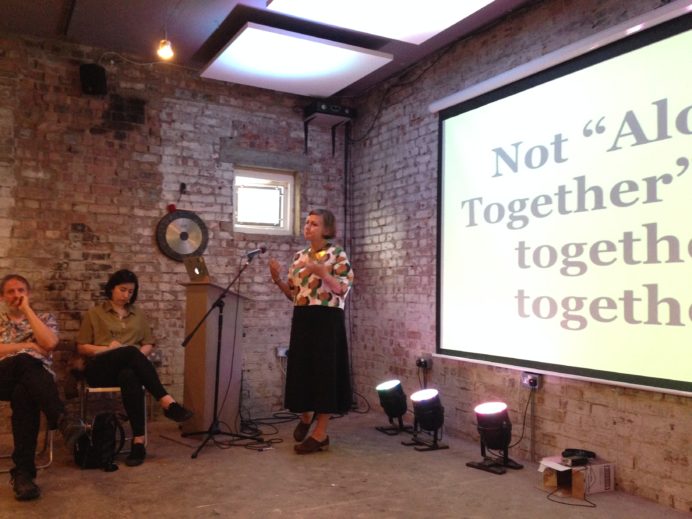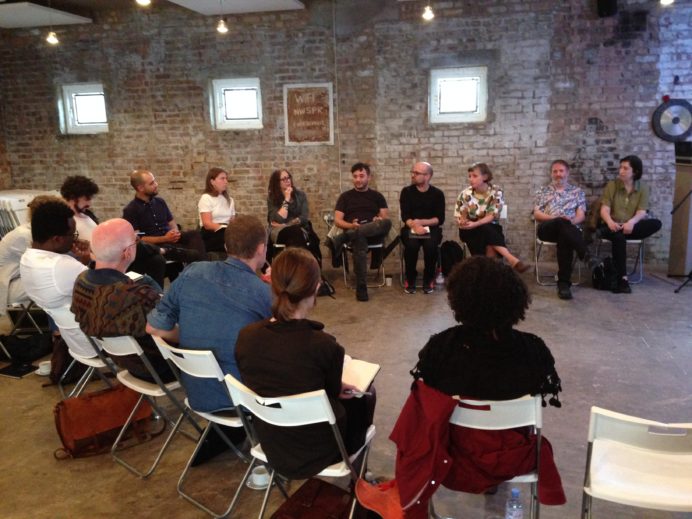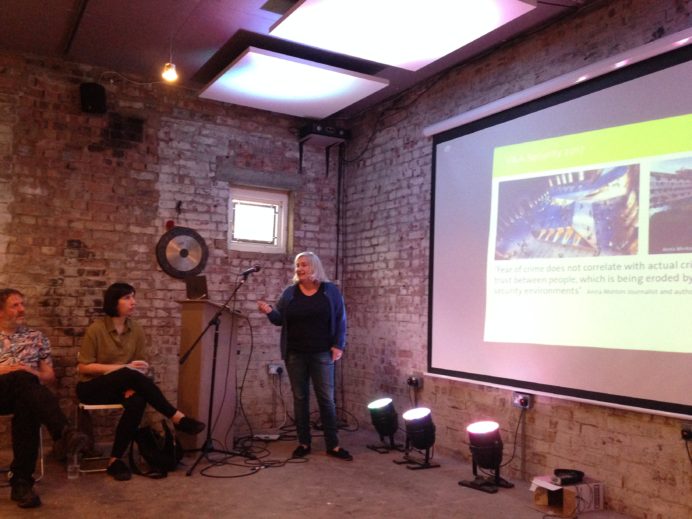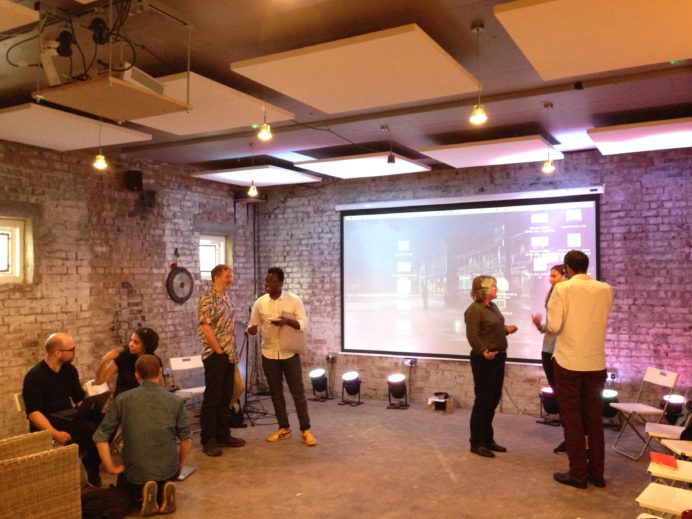Cultures of Algorithms
This event is brought together and led by Adam Greenfield in collaboration with Theatrum Mundi
Contemporary society is traversed at every level by the software-encoded rules generically known as “algorithms.” Algorithms determine whether or not we’ll be offered a job, or a loan, or a place at school. They guide the route and mode of transit we take on our way to and from work. They drive the disposition and posture of police on our streets, and if we should happen to run afoul of those police, strongly shape just what it is we’ll experience as we make our way through the criminal justice system. They shape what we wear, what we watch, what we listen to, what kind of answers we’re offered when we ask questions, possibly even who we woke up next to this morning. Together, their eld of operation is little short of total.
And yet, for all their tremendous power to condition our life choices and chances, very few of us understand algorithms — neither where they come from, nor how they do their work in the world, nor even necessarily what they are. The aim of this one-day workshop is to trace the material e ects of these seemingly immaterial actors from a variety of di erent disciplinary perspectives, and to share what it is we know about their origin, purpose, function and impact on our lives.
For the purposes of this conversation, we have chosen to emphasize three different aspects of our encounter with algorithms: their poetics, kinaesthetics and politics.
By “poetics,” we mean a consideration for an emergent algorithmic aesthetic in art, design, literature and craft, and especially the ways in which algorithmic systems begin to suggest the metaphors through which we explain and contextualize everyday experiences. By “kinaesthetics,” we mean the ways in which algorithms and machine-learning systems capture, understand, represent or condition the human body’s movement through urban space. And by “politics,” we mean the ways in which algorithmic systems condition, constrain or determine collective choice, especially with regard to the allocation of power.
During this day-long working group we will discuss these facets of algorithmic experience. We’re especially interested in the perspective of artists that consciously use the expressive dimension of emergent technologies to communicate experience, as we believe their work plays a critical role in helping a broader public understand the capabilities, implications and limits of the technologies that already do so much to condition our lives.
Agenda
11.15 Session 1 | The Poetics of Algorithmic Culture
Topics to be discussed might include James Bridle’s putative “New Aesthetic”; the legibility (for humans) of spaces and objects designed procedurally/parametrically; the drift into other expressive media of terminology originating in the study of algorithmic systems; and dimensions of the algorithmic sublime and uncanny.
Three 10-15-minute presentations and discussion.
12.30 Session 2 | The Kineaesthetics of Algorithmic Culture
Here we’ll treat aspects of the algorithmic capture and regulation of bodily experience: techniques of face recognition, gait recognition, etc.; the abandonment of traditional choreographic notation in characterizing the movement of the human body through space, and possible new approaches to doing same; pattern recognition and the characterization of stereotyped human gestures; and crowd detection, crowd-size and footfall analysis, and their use in the design of urban space.
Three 10-15-minute presentations and discussion.
14.30 Session 3 | The Politics of Algorithmic Culture
By “politics,” we mean the ways in which the systems described and discussed condition, constrain or determine collective choice, especially with regard to the allocation of power. Topics might include decision-support systems; credit-scoring systems and their use as tools of discipline; new modes of association or collective. action based on blockchain technologies; and China’s “social credit” system and its implications for networked authoritarianism elsewhere.
Three 10-15-minute presentations and discussion.
15.45 Session 4 | General discussion: Algorithms, activism and the arts
16.45 Wrap-up and next steps



